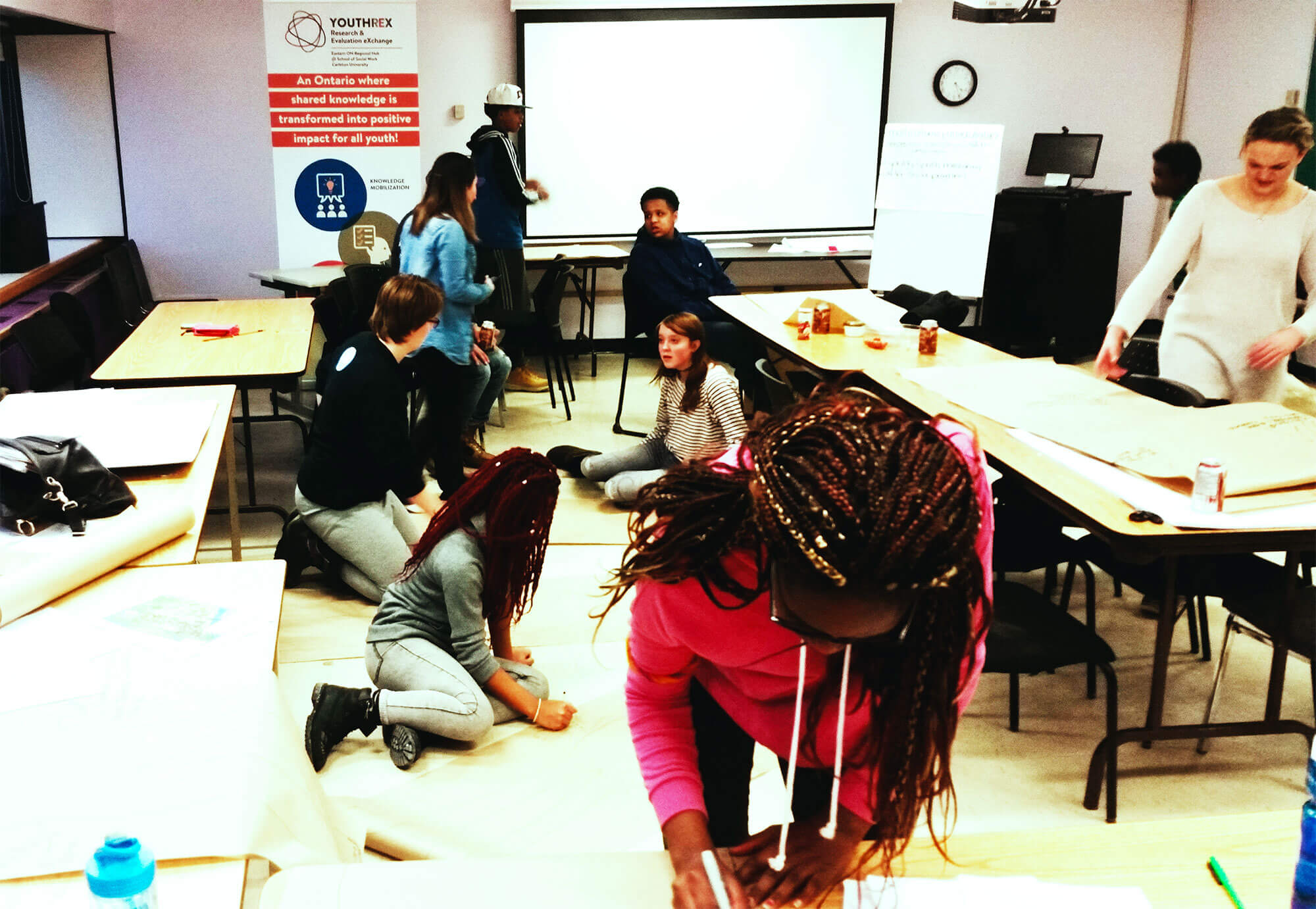Evaluate This! Expanding our Evaluation Repertoire to Include Youth
What’s happening? What happened? What worked?
What can I do differently next time to achieve a better outcome?
These common, though informal, reflections play in the back of my mind throughout my daily experiences. Whether I ask these in relation to new or ongoing circumstances, I am constantly involved in evaluative work. In principle, in this respect, evaluation is nothing new. Meaning-making is quite ordinary. What is less ordinary is the formalization of evaluative work and its potential to restructure practices and programs.
We need to acknowledge that formal evaluation as a common activity within the non-profit sector is a relatively new – and contested – phenomenon. We evaluate to be able to understand and improve our work. We evaluate to be able to demonstrate and communicate the impact of our work. The drivers of program evaluation are internal and external in origin.
The challenges and opportunities of program evaluation generally, which many are struggling with, take on a unique character when situated in relation to the youth sector and particularly the grassroots of the youth sector.
One of the findings identified by YouthREX through our study, Beyond Measure: The State of Evaluation and Action in Ontario’s Youth Sector is that we can do more to support the meaningful inclusion of youth in evaluation.
The rationale for involving youth in evaluation is rooted in democratic principles. Moreover, there are positive outcomes associated with youth involvement in evaluation for individual youth, adults, the organizations that they work in and the communities where they live.
Engaging youth in evaluation has the potential to benefit youth in many ways – for example, skill development, relationship building, and exposure to diverse opportunities to learn. The value added to the wider research process, however, should not be overlooked. Supporting youth engagement and leadership in research and evaluation:
- Improves the overall quality of the research and evaluation process (especially as a legitimizing voice in the research and inquiry of youth sector)
- Benefits the wider community as a whole
Kathrin Walker suggests, in her article on youth engagement in research and evaluation, that it directly contributes to validating the diverse experiences of youth and equalizing power relations, which then supports youth in exercising their wider political rights, participating in the democratization of knowledge production and civic engagement.
In order for evaluation to enhance youth work, youth need to be engaged in the process. Some organizations we interviewed are finding creative approaches to integrating evaluation into their work with youth – not as an add-on, but as a built in feature of the work itself:
“I think it’s really important because it gives them a sense of leadership. But it also – it’s just really helpful in communicating the impact in a stronger way of the kind of programming that we do. So like one of the things we have been talking about doing is working with youth to do a workshop – a video workshop that would kind of show a visual evaluation of the program. But we’d have youth learn how to conduct the interviews and learn how to create the video themselves. So that it’s not only like them evaluating the program visually, but it’s also them creating the evaluation in an artistic way”
(Participant ID 6, Medium-sized Organization, Northwestern Ontario).
“I think a challenge to find more ways of being more creative in terms of engaging them [youth] and engaging their feedback and looking at outcomes, etc., and developing tools that are applicable to a different learning styles and abilities. There was a time where we were very focused on doing questionnaires, but that’s not a very effective for some people who hate writing or have low literacy. … [now we’re holding] group discussions, finding ways of making evaluation interactive, where there’s movement, where there’s some creativity. They’re drawing pictures, or painting, or doing a video, just finding way of making the process of self-reflection and also giving feedback on programs and services received much more appealing to young people.”
(Participant ID 60, Large Organization, Central Ontario).
Grassroots youth organizations and initiatives excel at engaging youth. In many cases these organizations are driven by youth themselves – youth engagement is implicit in these cases, not something that needs to be developed. Evaluation capacity, on the other hand, as a formal activity requires customized and sustained support to develop. Similar to the philosophy of critical positive youth development, that builds on assets and engages context, evaluation capacity building with the grassroots youth sector will need to do the same. Beyond Measure calls on youth programs to share your experiences of meaningfully engaging youth in evaluation because this will build the capacity of the sector as a whole.
For those of you just beginning to think about engaging youth in evaluation, we’ve pulled together a factsheet to support your work. I also encourage you to check out this great resource prepared by the Youth-Adult Partnership for Youth Empowerment at the University of Wisconsin-Extension.
They produced a guide that summarizes key tips for supporting youth-adult partnerships in evaluation. The resource also includes practical and engaging data analysis strategies, recommended readings for field practitioners and an annotated literature review.
Let us know about how you include youth in evaluation!


